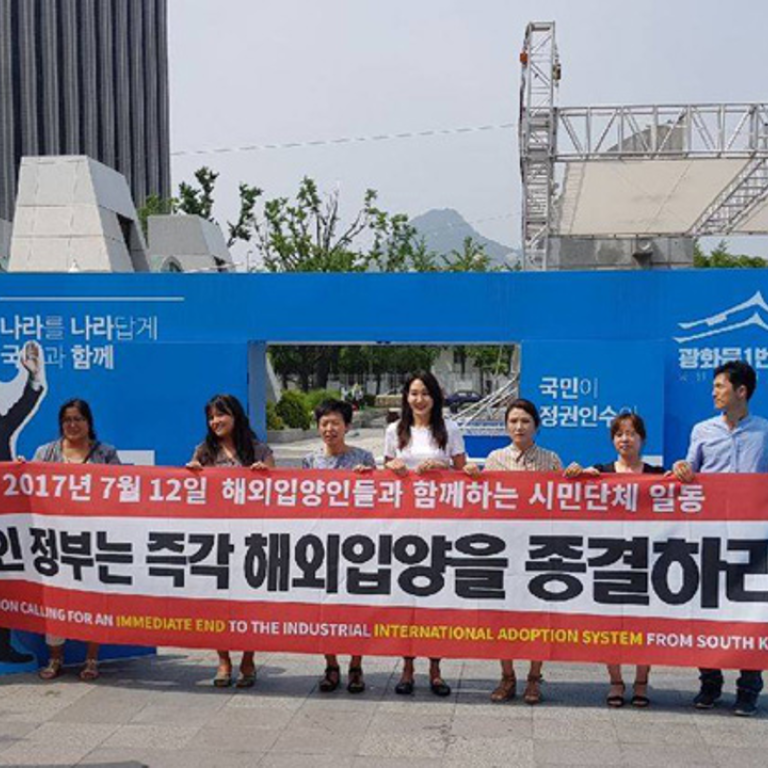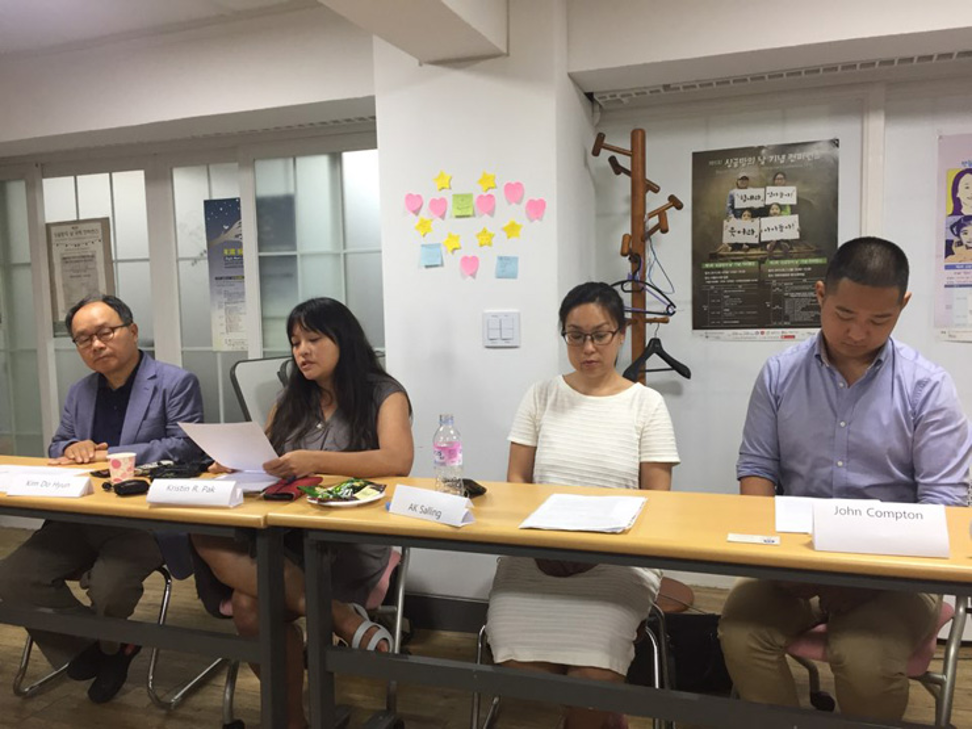
South Korean adoptees call for end to international adoption
Recent suicide of deported Korean adoptee ignites demands to end industrialised adoption practices
By You Soo-sun
Adoptee-led organisations called on the Korean government to immediately end the “industrialised international adoption” system.
The joint declaration, written at the University of California Irvine and addressed to the Moon Jae-in administration, was submitted at Gwanghwamun Square in central Seoul. In light of the recent death of deported Korean adoptee Philip Clay, members further stressed the need to prevent deportation and enhance the protection of rights for all adoptees.
John Compton, internal adviser at Global Overseas Adoptees’ Link (G.O.A.L), has mainly worked on advocating for deported adoptees including Clay. He started working with deported adoptees in 2013 and continues to maintain contact with eight of the adoptees.
He said although “15 years have passed since the issue was brought to light, there is still no place — policies, procedures, or programmes — for them in this system.” Compton said he took the initiative to have Clay’s remains sent to the U.S., by locating and contacting Clay’s adoptive parents and communicating with the Korean government and the U.S. Embassy.
He wondered why the Korean government or the adoption agency that facilitated his adoption did not take such measures. On Thursday, a small departure vigil will be held at Incheon International Airport before his remains are sent to the U.S.
The declaration, signed by scholars and members of various adoptee groups including G.O.A.L., KoRoot, Adoptee Solidarity Korea (ASK) and the Adoption, Naturalisation, Deportation Project (AND), further urged the government to enhance support for unwed mothers, improve post-adoption services, centralise adoption records and provide deported adoptees in Korea with adequate welfare services. They also asked the government to launch a task force to prevent deportation of adoptees and protect the rights of all adoptees returning to Korea.
One of the key issues addressed was the poor management and preservation of records that are often denied to adoptees even upon request.
The problem has resulted from the industrialisation of international adoption here, said Compton, as this induces stakeholders to create more demand for adopting rather than prioritising protecting the rights of the child.
Records were largely kept and managed by adoption agencies and orphanages, many of which no longer exist and hence have led to inaccurate accounts of those who have been adopted abroad and those who face citizenship issues in the U.S., Australia and other Western countries.
“The Korean government has known about the problem since the 1990s — they had enough time to address this issue by working with the U.S.,” Compton said. “Now is the time to come up with a plan to correct it.”


